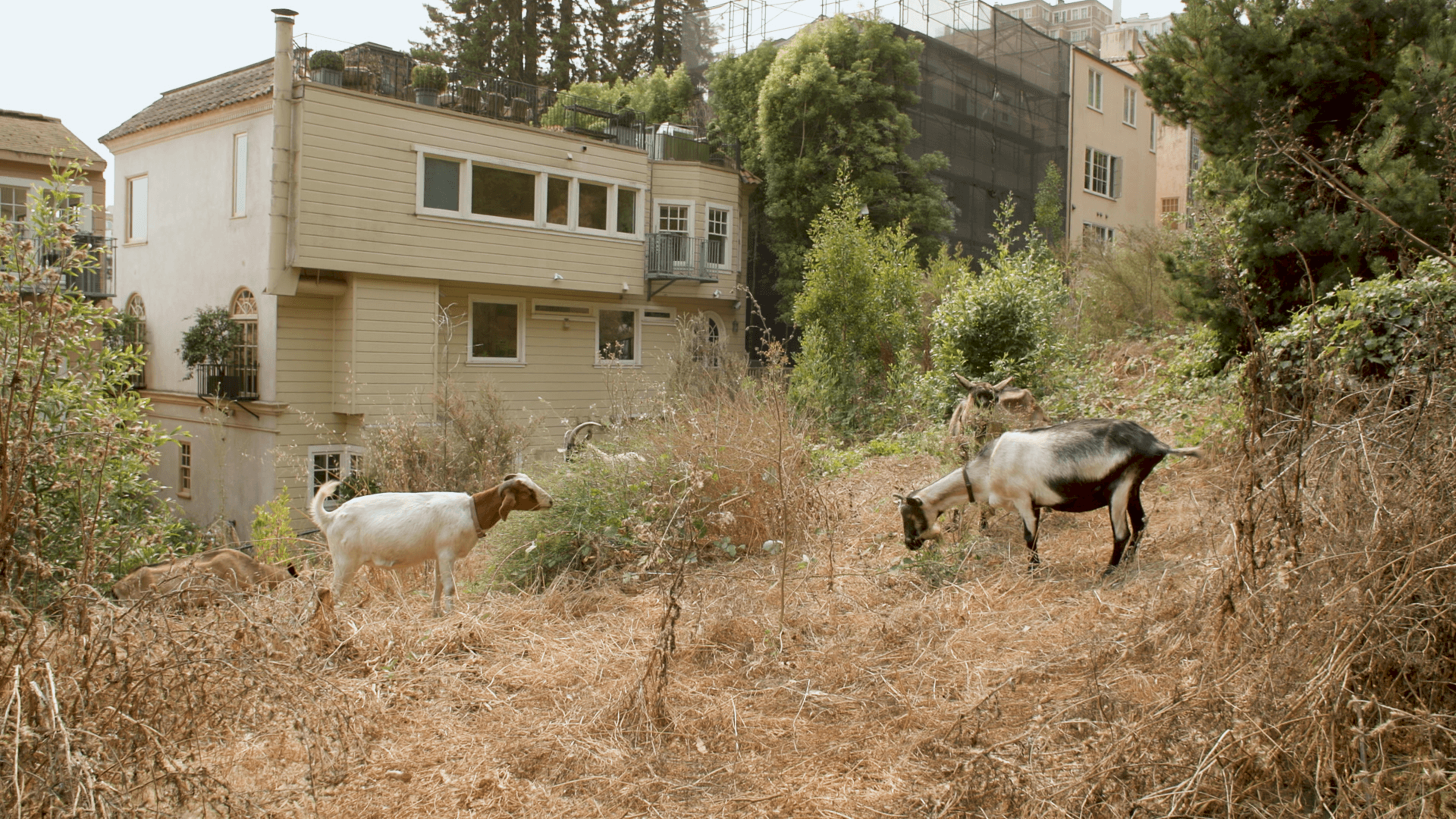Fifty odd goats nibbled on morning glory vines, Cape ivy and Himalayan blackberry bushes in the Presidio on a recent Wednesday morning.
Their task? Helping to fend off invasive plant species, mitigate the city’s risk of wildfire, fertilize the park’s soil and spread joy to passersby.
The menagerie belongs to City Grazing (opens in new tab), a Bayview-based nonprofit whose mission is sustainable land management through goat grazing. City Grazing services approximately 70 acres throughout the Bay Area each year.
For executive director Genevieve Church, who grew up near Yosemite on a cattle ranch, City Grazing is more a vocation than a career.
“I’m honored to be a part of even a tiny solution to some of the environmental problems that we have. And goats—they give us so much joy, on top of what they do for the little chunks of greenery all around us,” she said.
“I love everything about working with goats except the smell.”

The herd of approximately 100 goats provides fire mitigation services to the surrounding area. They nosh on last year’s vegetation that otherwise would dry out and become potential fodder for fire.
Goats are natural fits for wildfire prevention because of their ability to graze in steep spots that are difficult for machines to reach—making them an especially good choice for the hilliest city in the United States.
“We’re bringing in these animals that don’t make a lot of noise, don’t use a lot of water, don’t produce a lot of methane and take all of the unwanted vegetation and turn it into topsoil,” said Church.
On top of that, the goats are a joy to behold.
“I’ll see people that are jogging and they’ll just come to a dead stop,” said Church. “You see this childlike joy come over their face and they’ll come over and put a leaf through the fence and get really excited if a goat comes over to talk to them.”

The goats, however, are not themselves kids. Most are former dairy goats over the age of five or six—around 45 years old in human years—who can no longer produce milk.
“One of the most fun aspects of what we do is giving dairy goats a midlife career change,” said Church.
City Grazing also adopts ten to 15 young goats per year who would otherwise be raised for meat.
Some of the nonprofit’s largest clients include the San Francisco Sheriff’s Department, University of San Francisco and UCSF Mount Sutro, as well as the Recreation and Parks Department and Municipal Transportation Agency.
Church’s herd is also available for brush and weed removal for small properties or backyards. Pricing starts at $500.
Though the majority of City Grazing’s income comes from its clients, the nonprofit relies on donors to help cover costs, including caring for young meat industry rescues who can’t graze until about two years of age.
Back at the Presidio, goats Oliver, Dorothy, Klay, Winston and Lucky noshed on blackberries and jostled for attention from Church and passersby.
“Goats have their own social hierarchies. They make friends. They have tight little social circles. And then all of a sudden that’ll break and they’ll get new friends. They’re very much like us,” said Church.

They’re also adventurous climbers. Double Stuff, a particularly audacious goat, climbed a tree onto a neighboring shed a few years ago, where he fell off and broke a horn. Double Stuff was rushed to UC Davis Medical Center and fully recovered. Still, Church has learned her lesson.
“We have to be very careful to not put fences in places where they can climb trees.”
Ultimately, Church’s hope is that City Grazing and its herd of goats will inspire San Franciscans to consider sustainable approaches to living whenever possible.
“Goats give us a really fun place to start. And we want to inspire people to find other solutions to our environmental problems,” said Church.
“Goats can’t do it all, but we try,” she added.
Video by Mike Kuba.